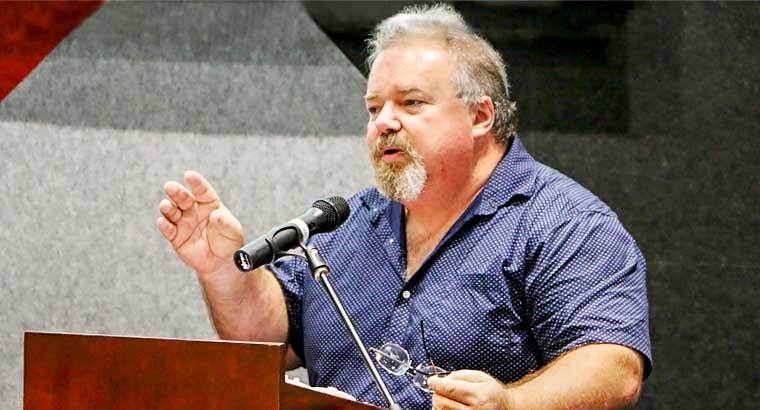News
Experts warn ‘racism will cost lives’ during coronavirus response
Incidents of racism and a reluctance to test Aboriginal and Torres Strait Islander patients have raised ethical concerns.
 The RACGP is dismayed to hear of incidents of racism against Aboriginal and Torres Strait Islander people seeking healthcare for coronavirus.
The RACGP is dismayed to hear of incidents of racism against Aboriginal and Torres Strait Islander people seeking healthcare for coronavirus.
‘Blatant racism can never be tolerated – least of all at this crucial time.’
This is the stern message issued to healthcare workers across the country by the Australian Indigenous Doctors Association (AIDA), following numerous reported incidents of racism against Aboriginal and Torres Strait Islander people seeking healthcare during the coronavirus response.
One incident involving a patient identifying as Aboriginal took place in a regional hospital in New South Wales, where they were reportedly denied testing after being told that treatment would only be offered to ‘real Aborigines’.
In a Western Australian hospital, a comment was made that Aboriginal and Torres Strait Islander patients ‘only get it [coronavirus] because they don’t wash their hands’.
Associate Professor Shannon Springer, AIDA Vice President, told newsGP the incidents highlight the institutional racism and interpersonal racist attitudes present within the healthcare system.
‘None of this is surprising and none of this is uncommon in terms of offering tests to Aboriginal and Torres Strait Islander patients in terms of access to healthcare,’ he said.
‘What makes it more poignant at this point in time is trying to mitigate the spread of infection, and that’s most problematic in terms of an actual pandemic and trying to stop the spread and also getting appropriate advice.’
Aboriginal and Torres Strait Islander communities are particularly vulnerable to a coronavirus outbreak due to the large number of people with multi-comorbidities. Further to that, many are living in overcrowded conditions increasing the chance of transmission.
To help mitigate the risk, entry to remote communities has been restricted under the Biosecurity Act to allow access to only medical and health staff, as well as protective and educational services.
To ensure people do not miss out on testing and early diagnosis, Associate Professor Springer says access to culturally safe and appropriate healthcare is vital.
Associate Professor Peter O’Mara, Chair of RACGP Aboriginal and Torres Strait Islander Health, agrees. He told newsGP there needs to be greater understanding of the far-reaching implications of discrimination.
‘It goes beyond that individual who’s being exposed to racism because their family members will hear that, take that on board and go “oh yeah, we can’t go there to get treatment because this is what they do”. Therefore people will stay away and not receive the treatment that they need rather than attend and get appropriate care,’ he said.
‘We’ve got to change the way we think about this, particularly in this environment that we’re in today. If we get COVID-19, the results for our people aren’t going to be the same as for the rest of the population; it’s going to be dramatically worse.
‘What we really need is to be encouraging and fostering is an environment where people feel safe to go to the health system and get the right kinds of treatment early, rather than putting everyone else at risk of transmission of infection because they’re too afraid to go get treatment.’

Chair of RACGP Aboriginal and Torres Strait Islander Health Associate Professor Peter O’Mara believes there needs to be greater understanding of the far-reaching implications of discrimination.
Associate Professor Springer suggests that utilising Aboriginal and Torres Strait Islander health workers is very important when it comes to education, testing, treatment and contact tracing in the instance of confirmed cases.
Further to that, he says it is vital that standard protocols are used by health professionals to ensure they are able to identify Aboriginal and Torres Strait Islander patients.
‘We need to be mindful of general inequities of the population and the context of that,’ he said.
‘It may take a lot of effort for Aboriginal and Torres Strait Islander people to actually present to healthcare during this time – so if this is the one time they go to see a doctor or nurse or health professionals, that we not only look for testing of COVID-19 but we make sure that the patient’s general health and well-being is looked after, particularly in the context of chronic diseases.’
Once the dust settles on the pandemic, Associate Professor Springer says he hopes there will be lessons to take away from the crisis and the inadequate response to this cohort thus far.
‘You really can’t expect a holistic response to be mobilised if you haven’t got the fundamentals in place. And those fundamentals and struggling to get consistency in terms of healthcare, health infrastructure on the ground, and then trying to respond to a crisis like this is just going to make it very difficult,’ he said.
‘What this highlights is that Aboriginal and Torres Strait Islander people want self-determination and self-empowerment and those innate qualities are there – that’s been demonstrated during this crisis. In the middle of difficulty, people are stepping up and I think it's great.’
The RACGP is dismayed to hear of incidents against Aboriginal and Torres Strait Islander people seeking healthcare for coronavirus. The college in 2018 released a position statement on racism in the healthcare sector, which includes a zero tolerance position towards racism.
In support of AIDA’s stance, the RACGP calls on all health professionals to ensure a safe environment for all Aboriginal and Torres Strait Islander patients.
The RACGP has a range of materials to support GPs and GP teams to deliver culturally safe healthcare.
Log in to join the conversation.
Aboriginal and Torres Strait Islander coronavirus COVID-19 racism
newsGP weekly poll
As a GP, do you use any resources or visit a healthcare professional to support your own mental health and wellbeing?